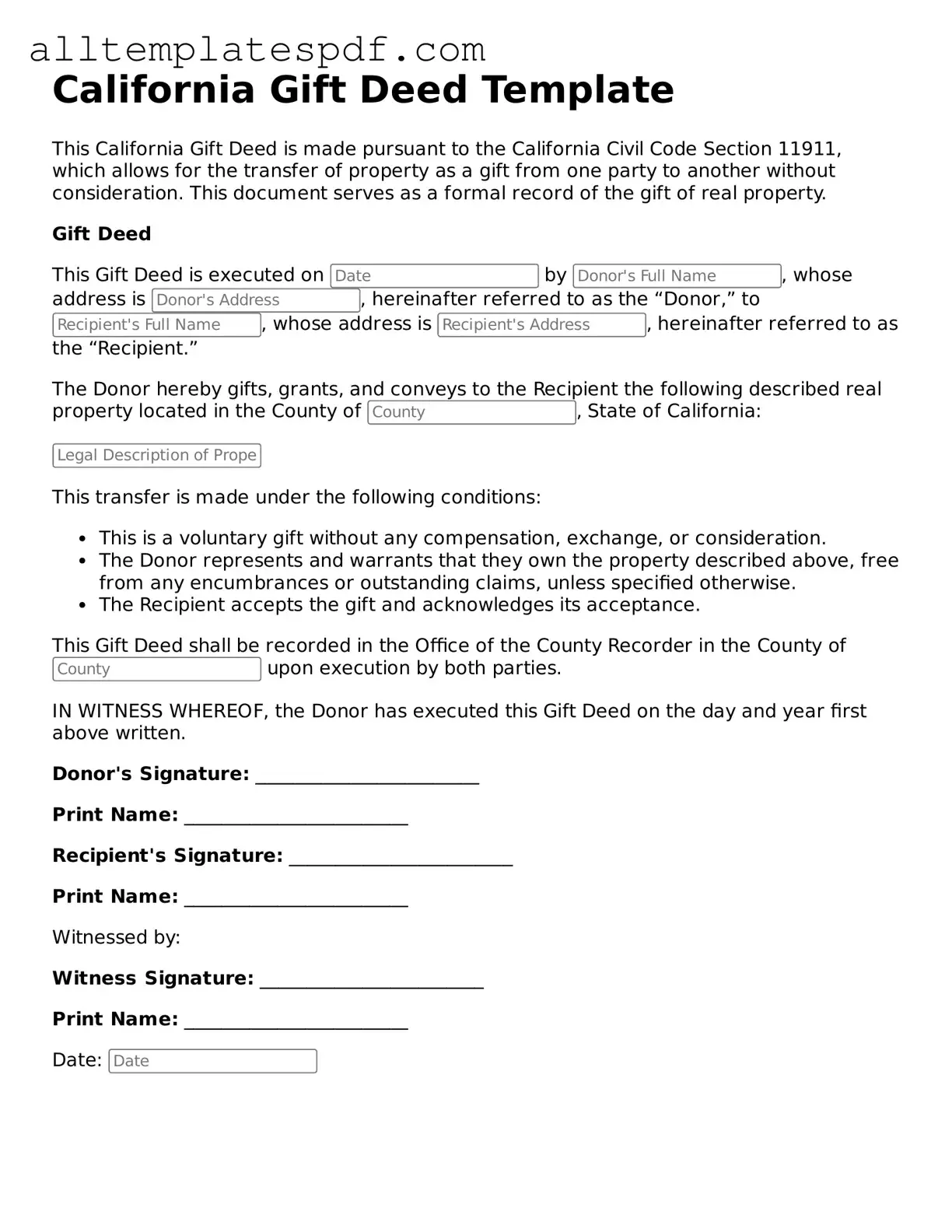Filling out the California Gift Deed form can be a straightforward process, but many individuals make common mistakes that can lead to complications. One significant error is failing to include all required information. The form requires specific details about both the donor and the recipient, including their full names and addresses. Omitting any of this information can result in delays or the rejection of the deed.
Another mistake occurs when individuals do not properly describe the property being gifted. The legal description must be accurate and detailed. A vague description can create confusion and lead to disputes later on. It's essential to ensure that the property description matches the information recorded with the county assessor's office.
People often overlook the importance of signatures on the Gift Deed. Both the donor and any necessary witnesses must sign the form for it to be valid. If the deed is not signed correctly, it may not be enforceable, which defeats the purpose of the gift. Additionally, some individuals may forget to have the document notarized, which is a critical step in the process.
Another common error involves failing to check for any existing liens on the property. Before completing the Gift Deed, it is crucial to ensure that the property is free of encumbrances. If there are liens, the recipient may inherit these financial obligations, which can complicate ownership.
Misunderstanding tax implications is also a frequent issue. Donors may not realize that gifting property can have tax consequences, such as gift taxes or implications for capital gains taxes. Consulting with a tax professional before completing the Gift Deed can help clarify these issues and avoid unexpected liabilities.
Many individuals neglect to keep copies of the completed Gift Deed. It is vital to retain a copy for personal records. This documentation can be important for future reference, especially if any questions arise regarding the gift or ownership of the property.
Finally, some people fail to record the Gift Deed with the county recorder's office. While the deed may be valid once signed, recording it provides public notice of the transfer and protects the recipient's rights. Without recording, the gift may not be recognized in legal matters, leading to potential disputes in the future.

